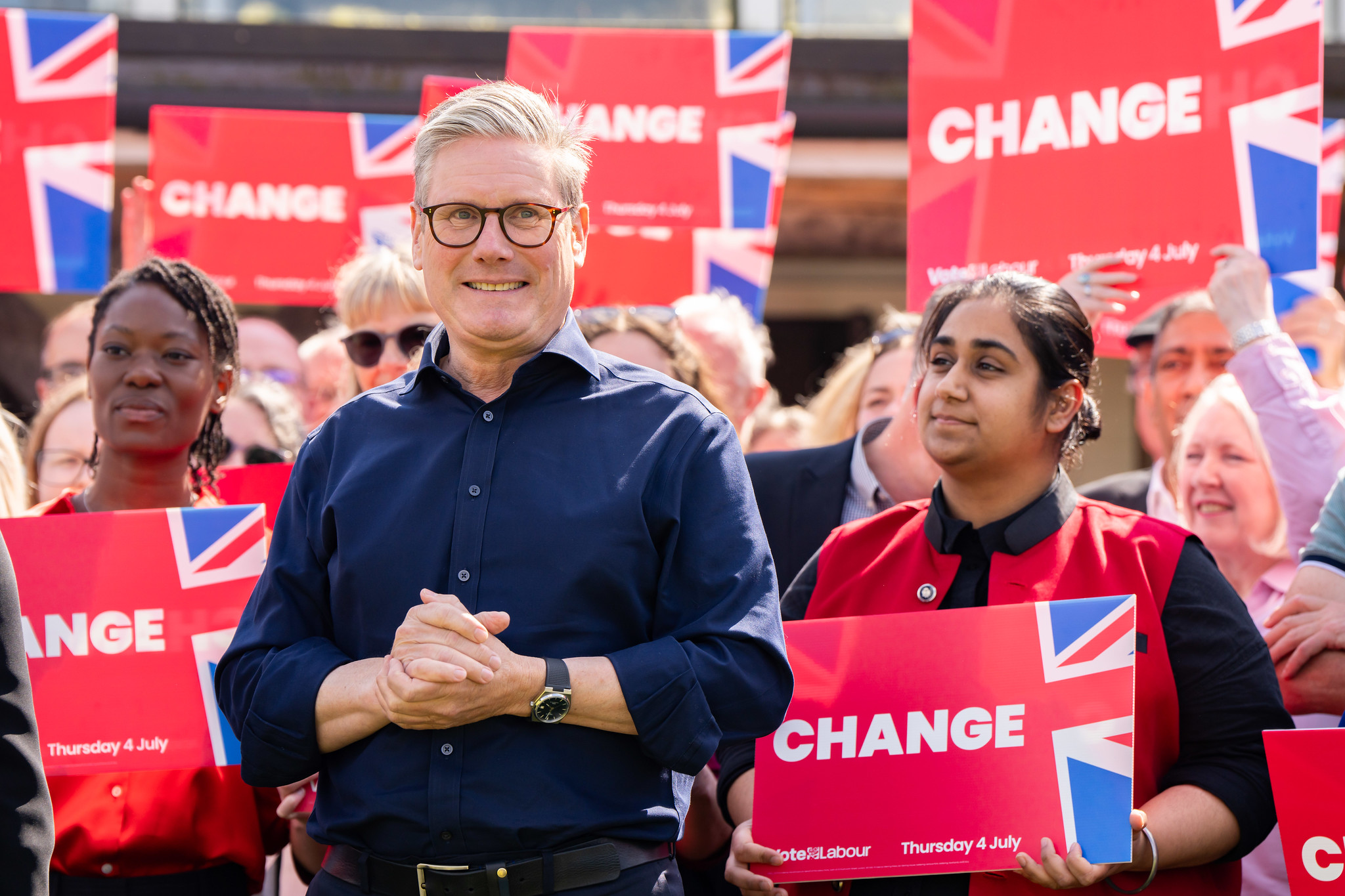
Source: Keir Starmer via Flickr
Another election is over, this time leaving us with a Labour government wielding a remarkable majority. A time of ousted Tories usually brings relief to the culture sector. But the now-governing party’s campaign and plan for the creative industries lacked the detail to get anyone truly excited about how Labour can help the arts.
So, what exactly can we deduce about Labour’s plans for arts and culture? And how might it affect the sector in the North?
A new secretary, with Northern roots.
After Thangam Debbonaire – originally in line for the Culture Secretary role – failed to retain her seat, we now know Lisa Nandy will be responsible for DCMS. Though this may change in future reshuffles, and despite the conduit role we’ve come to expect from ministers, there are things about Nandy worth noting.
With no shadow experience, she will be learning fast about the sector’s needs and should provide updates on her priorities soon. These are hard to forecast, given her lack of experience. But as an MP for Wigan and a proud Northerner, Nandy has a track record of advocating for devolution and regional investment – in an interview with the MEN, Nandy expressed her concerns about the fact that reduced public funding for the arts leads to greater philanthropy, benefiting institutions in the capital, and increasing “regional inequality rather than breaking down those barriers everywhere.” This can give us hope that rebalancing support for culture in the country is something she’ll back.
She’ll also have the assistance of Chris Bryant as Arts Minister, who has been vocal about the need to fix disparities in arts spending on areas outside of London, as well as improving access and diversity in the sector. His experience will offset the gaps in Nandy’s knowledge.
Nandy’s Northern background could prove inconsequential – Nadine Dorries’ stressed her working-class Northern background when arguing for levelling up, though not much was really levelled up in her time. Looking at Lisa Nandy’s work on helping Wigan Football Club and the case she makes for more local ownership in her latest book, she carves a figure committed to helping communities and causes that mean a lot to the North’s electorate. If Labour gets serious about reducing inequality across the nation, then having someone like Nandy should be promising for the North’s culture sectors.
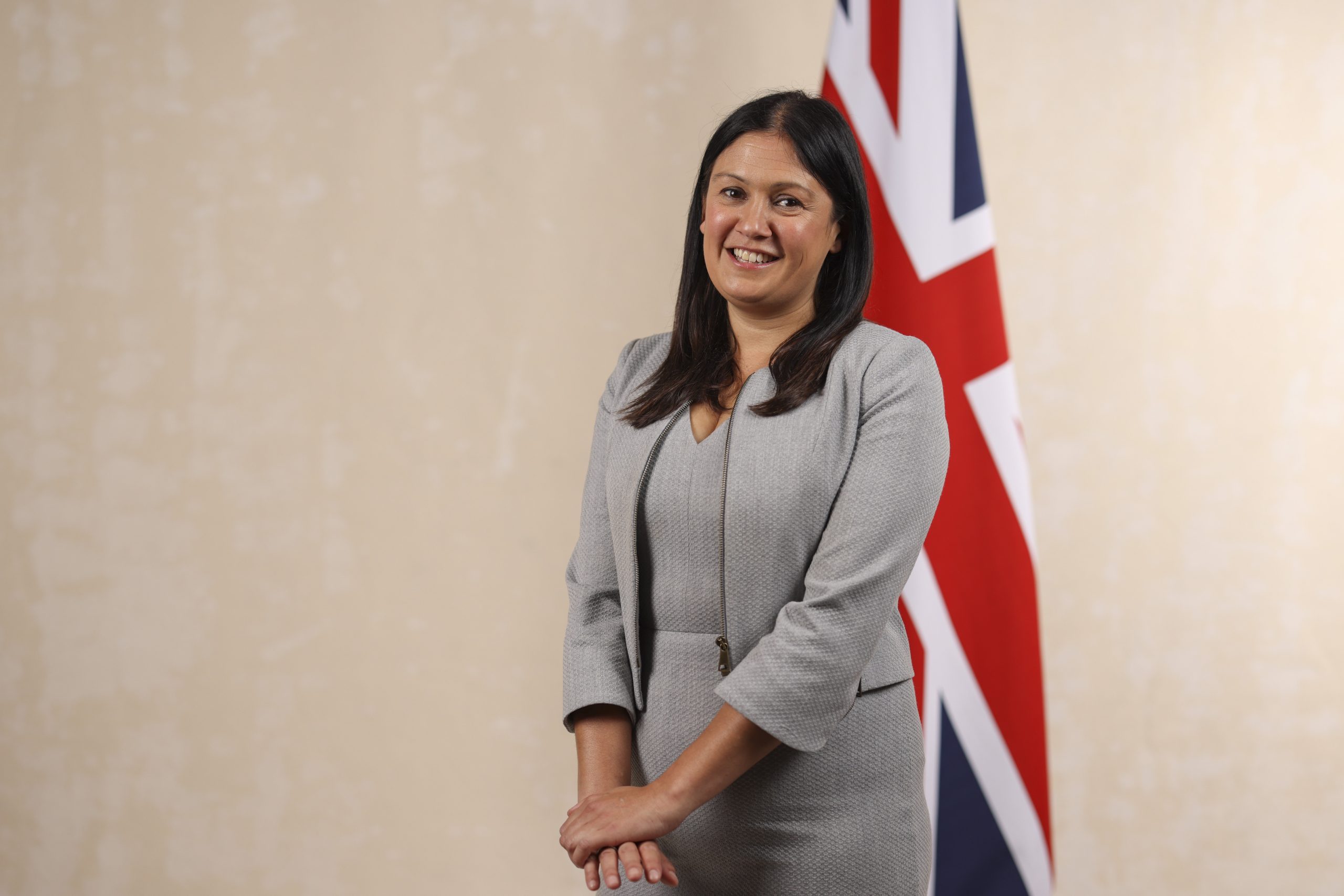
Lisa Nandy. Picture by Lauren Hurley / No 10 Downing Street via Downing Street Flickr
Less London-centrism?
This will of course depend on Lisa Nandy’s party’s directive. Government after government has promised to share resources more fairly across the country. The new Labour government has come up with Space to Create to redress the balance in culture, a scheme that will pick and prioritise areas and places of urgent support – though this won’t be region specific.
The need for support in Northern towns and communities is glaringly obvious. The former Conservative government made a start on decentralising funding away from London by incentivising the Arts Council to increase focus on North-based organisations and projects. Labour will pick up the review of ACE started in March and may double down on this.
Keir Starmer has already engaged a team of local mayors as a step towards his party’s devolution plan. Having a national government aligned with regional mayors in the North who celebrate the value of culture, such as Tracy Brabin, Andy Burnham and Steve Rotherham, will give them more freedom to continue their work in growing their local sectors.
Taken together, these factors point towards a period of potential improvement for the arts in the North.
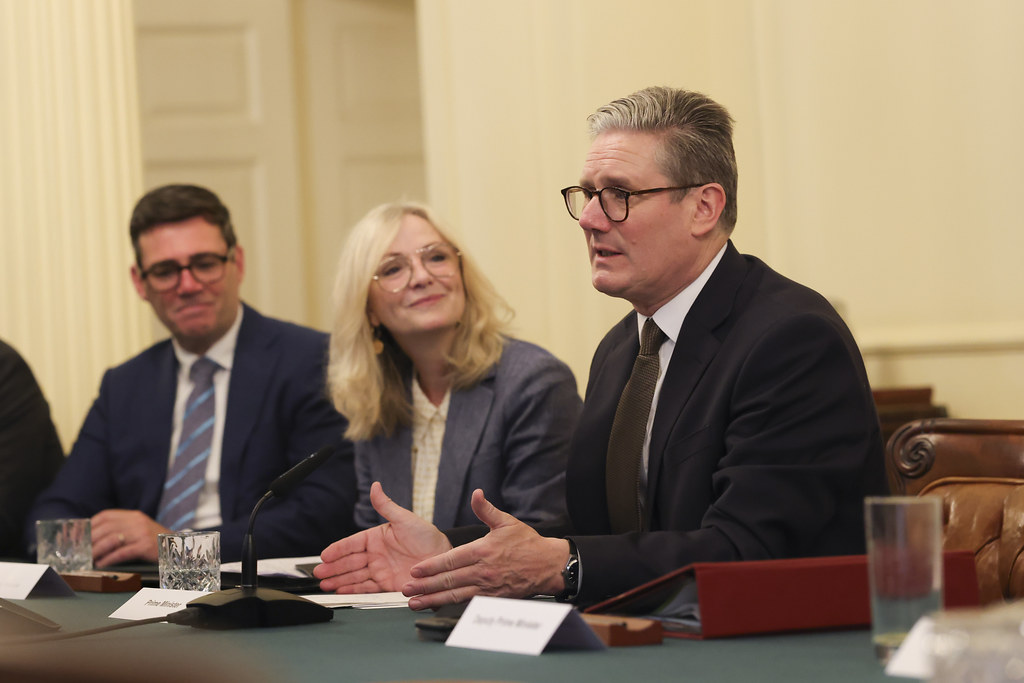
Andy Burnham, Tracy Brabin and Keir Starmer (l-r). Picture by Simon Dawson / No 10 Downing Street via Downing Street Flickr
A future-facing approach?
The outgoing Conservative government repeatedly showed disdain for arts education and development. Reversing this is Labour’s key pledge for the sector.
They say they will improve creative education and set up a National Music Education Network to make creative subjects and practise more valuable in the school system.
Changes to the curriculum, to children and young people’s access to cultural events, and to development programmes would all be welcomed by the sector, which needs more people to see being an artist or arts professional as a viable and rewarding career option – a definite improvement on the “get a proper job” narrative pushed by the Tories.
Long-term, these early interventions will encourage a more diverse cohort to enter the arts. But this isn’t just about challenging elitism and inaccessibility; Labour have outlined the economic value of getting more young people into arts and culture, which is reassuring of their long-term intentions.
Less spending on the present…
But what will the arts landscape actually be like for the next generation, the generation Labour is so committed to cultivating? Without proper support, it could be pretty scarce.
Labour have made announcements for assisting business through this economic rut – promises of reducing business rates and regulating energy to help SMEs have been welcomed by the nighttime and live events industry.
But Labour have been vague about money for the subsidised sector. They promise to work on a “new finance model” for organisations to access funding, which could take months or years to deliver. Anyone expecting more centralised grants and subsidies to be available, or an increase in venues and spaces, or even just more emergency support for a struggling sector, shouldn’t expect too much too soon.
The broad economic picture has not changed overnight for the UK. We still need to wait and see what Labour do to spark growth, control inflation and find new money for public spending on everything, including the arts. How long that takes, and where the arts sector comes in the queue for much needed assistance, is to be confirmed.
Waiting to see…
Many questions remain for Labour on its culture policy.
What exactly will Labour do to protect freelancers, as was vaguely promised in their New Deal for Workers, that make up a bulk of the sector and were hung out to dry in the pandemic?
What can Labour do about AI and its challenge to creative practice?
How will oppressed communities be supported or represented in the sector, given Labour’s inconsistency on issues like trans rights, or Palestine?
Like everyone else in the UK, the arts sector and those in the North will need to wait a little longer to find out what a promise of change actually looks like in today’s climate.
***
What else are you expecting from the new Labour government? Let us know on socials or contact us via email!
Filed under: Community
Tagged with: Andy Burnham, arts and culture, culture policy, General Election, government, Keir Starmer, labour, Lisa Nandy, Tracy Brabin, uk culture, uk general election

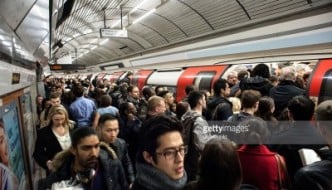
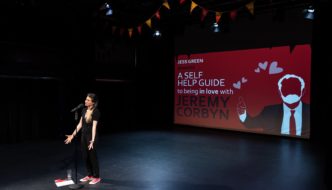
Comments